Text
some fucking resources for all ur writing fuckin needs
* body language masterlist
* a translator that doesn’t eat ass like google translate does
* a reverse dictionary for when ur brain freezes
* 550 words to say instead of fuckin said
* 638 character traits for when ur brain freezes again
* some more body language help
(hope this helps some ppl)
186K notes
·
View notes
Text
Journals, articles, books & texts, on folklore, mythology, occult, and related -to- general anthropology, history, archaeology.
Some good and/or interesting (or hokey) ‘examples’ included for most resources.
tryin to organize & share stuff that was floating around onenote.
Journals (open access)
– Folklore, Occult, etc
Culutural Analysis - folklore, popular culture, anthropology
– The Mythical Ghoul in Arabic Culture
Folklore - folklore, anthropology, archaeology
– The Making of a Bewitchment Narrative, Grecian Riddle Jokes
Incantatio - journal on charms, charmers, and charming
– Verbal Charms from a 17th Century Manuscript
Oral Tradition
– Jewish Folk Literature, Noises of Battle in Old English Poetry
Journal of Ethnology and Folkloristics
– Nani Fairtyales about the Cruel Bride, Energy as the Mediator between Natural and Supernatural Realms
International Journal of Intangible Heritage
Studia Mythologica Slavica (many articles not English)
– Dragon and Hero, Fertility Rites in the Raining Cave, The Grateful Wolf and Venetic Horses in Strabo’s Geography
Folklorica - Slavic & Eastern European folklore association
– Ritual: The Role of Plant Characteristics in Slavic Folk Medicine, Animal Magic
Esoterica - The Journal of Esoteric Studies
– The Curious Case of Hermetic Graffiti in Valladolid Cathedral
The Esoteric Quarterly
Mythological Studies Journal
Luvah - Journal of the Creative Imagination
– A More Poetical Character Than Satan
Transpersonal Studies
– Shamanic Cosmology as an Evolutionary Neurocognitive Epistemology, Dreamscapes
Beyond Borderlands
– tumblr
Paranthropology
GOLEM - Journal of Religion and Monsters
– The Religious Functions of Pokemon, Anti-Semitism and Vampires in British Popular Culture 1875-1914
Correspondences - Online Journal for the Academic Study of Western Esotericism
– Kriegsmann’s Philological Quest for Ancient Wisdom
– History, Archaeology
Adoranten - pre-historic rock art
Chitrolekha - India art & design history
– Gomira Dance Mask
Silk Road
– Centaurs on the Silk Road: Hellenistic Textiles in Western China
Sino-Platonic - East Asian languages and civilizations
– Discursive Weaving Women in Chinese and Greek Traditions
MELA Notes - Middle East Librarians Association
Didaskalia - Journal for Ancient Performance
Ancient Narrative - Greek, Roman, Jewish novelistic traditions
– The Construction of the Real and the Ideal in the Ancient Novel
Akroterion - Greek, Roman
– The Deer Hunter: A Portrait of Aeneas
Greek, Roman and Byzantine Studies
– Erotic and Separation Spells, The Ancients’ One-Horned Ass
Roman Legal Tradition - medieval civil law
– Between Slavery and Freedom
Phronimon - South African society for Greek Philosophy and the Humanities
– Special Issue vol. 13 #2, Greek philosophy in dialogue with African+ philosophy
The Heroic Age - Early medieval Northwestern Europe
– Icelandic Sword in the Stone
Peregrinations - Medieval Art and Architecture
– Special Issue vol. 4 #1, Mappings
Tiresas - Medieval and Classical
– Sexuality in the Natural and Demonic Magic of the Middle Ages
Essays in Medieval Studies
– The Female Spell-caster in Middle English Romances, The Sweet Song of Satan
Hortulus - Medieval studies
– Courtliness & the Deployment of Sodomy in 12th-Century Histories of Britain, Monsters & Monstrosities issue, Magic & Witchcraft issue
Annual of Medieval Studies at CEU
Medieval Archaeology
– Divided and Galleried Hall-Houses, The Hall of the Knights Templar at Temple Balsall
Medieval Feminist Forum
– multiculturalism issue; Gender, Skin Color and the Power of Place … Romance of Moriaen, Writing Novels About Medieval Women for Modern Readers, Amazons & Guerilleres
Quidditas - medieval and renaissance
Medieval Warfare
The Viking Society - ridiculous amount of articles from 1895-2011
Journals (limited free/sub/institution access)
Al-Masaq - Journal of the Medieval Mediterranean
– Piracy as Statecraft: The Policies of Taifa of Denia, free issue
Mythical Creatures of Europe - article + map
Folklore - limited free access
– Volume 122 #3, On the Ambiguity of Elves
Digital Philology - a journal of medieval cultures
– Saracens & Race in Roman de la Rose Iconography
Pomegranate - International Journal for Pagan Studies
Transcultural Psychiatry
European Journal of English Studies
– Myths East of Venice issue, Esotericism issue
Books, Texts, Images etc.
– Folklore, Occult etc.
Magical Gem Database - Greek/Egyptian gems & talismans [x] [x]
Biblioteca Aracana - (mostly) Greek pagan history, rituals, poetry etc.
– Greater Tool Consecration, The Yew-Demon
Curse Tablets from Roman Britain - [x]
The Gnostic Society Library
– The Corpus Hermeticum, Hymn of the Robe of Glory
Grimoar - vast occult text library
– Grimoires, Greek & Roman Necromancy, Queer Theology, Ancient Christian Magic
Internet Sacred Text Archive - religion, occult, folklore, etc. ancient texts
Verse and Transmutation - A Corpus of Middle English Alchemical Poetry
– History
The Internet Classics Archive - mainly Greco-Roman, some Persian & Chinese translated texts
Bodleian Oriental Manuscript Collection - [x] [x] [x]
Virtual Magic Bowl Archive - Jewish-Aramaic incantation bowl text and images [x] [x]
Vindolanda Tablets - images and translations of tablets from 1st & 2nd c. [x]
Corsair - online catalog of the Piedmont Morgan library (manuscripts) [x] [x]
Beinecke rare book & manuscripts
– Wagstaff miscellany, al-Qur'ān–1813
LUNA - tonnes from Byzantine manuscripts to Arabic cartography
Maps on the web - Oxford Library [x] [x] [x]
Bodleian Library manuscripts - photographs of 11th-17th c. manuscripts
– Treatises on Heraldry, The Worcester Fragments (polyphonic music), 12 c. misc medical and herbal texts
Early Manuscripts at Oxford U - very high quality photographs
– (view through bottom left) Military texts by Athenaeus Mechanicus 16th c. [x] [x], MS Douce 195 Roman de la Rose [x] [x]
Trinity College digital manuscript library
– Mathematica Medica, 15th c.
eTOME - primary sources about Celtic peoples
Websites, Blogs
– Folklore, Occult etc.
Demonthings - Ancient Egyptian Demonology Project
Invocatio - (mostly) western esotericism
Heterodoxology - history, esotericism, science
– Religion in the Age of Cyborgs
The Recipes Project - food, magic, science, medicine
– The Medieval Invisible Man (invisibility recipes)
Morbid Anatomy - museum/library in Brooklyn
– History
Islamic Philosophy Online - tonnes of texts, articles, links, utilities, this belongs in every section; mostly English
Medicina Antiqua - Graeco-Roman medicine
History of the Ancient World - news and resources
– The So-called Galatae, Gauls, Celts in Early Hellenistic Balkans; Maidens, Matrons Magicians: Women & Personal Ritual Power in Late Antique Egypt
Διοτίμα - Women & Gender in Antiquity
Bodleian Library Exhibitions Online
– Khusraw & Shirin, Hebrew Manuscripts as a Meeting-Place of Cultures
Medievalists
– folk studies, witchcraft, mythology, science tags
Atlas Obscura
– Bats and Vampiric Lore of Pére Lachaise Cemetery
61K notes
·
View notes
Text
cliche prompts!
hi!! this is may be slight crack but… i love cliches so much and i hope you do too!
oH nO there’s oNly onE bed
fake dating
best friends to lovers
jealous crush
jock and nerd
enemies to lovers
bad boy/girl/person
no more seats in the car guess i have to sit in ur lap
we both have feelings for each other but we’re dumb
body heat as warmth
truth or dare confessions
drunk confession
scary movie.. guess we gotta cuddle
in the rain
amNeSia
secret admirer
guess i have to wear your clothes… but they’re so big!!
flirty character and shy character
saved from bullies
comfort after a nightmare
532 notes
·
View notes
Text
Awesome Sites and Links for Writers
Just about every writer out there has several go-to websites that they use when it comes to their writing. Be it for creativity, writer’s block, to put you in the mood or general writing help. These are mine and I listed them in hopes that you’ll find something that you’ll like or find something useful. I’ve also included some websites that sounded interesting, but I haven’t tried out yet.
Spelling & Grammar
Grammar Girl – Grammar Girl’s famous Quick and Dirty Tips (delivered via blog or podcast) will help you keep your creative writing error free.
The Owl – is Purdue University’s Online Writing Lab (OWL), an academic source from Purdue University (which is in West Lafayette, Indiana, U.S.). It’s contains plenty of grammar guides, style tips and other information that can help with your writing, it’s especially great for academics.
Tip of My Tongue — have you ever had trouble of thinking of a specific word that you can’t remember what it is? Well, this site will help you narrow down your thoughts and find that word you’ve been looking for. It can be extremely frustrating when you have to stop writing because you get a stuck on a word, so this should help cut that down.
Free Rice – is a great way to test your vocabulary knowledge. What’s even better about this site is that with every correct answer, they donate 10 grains of rice to the United Nations World Food Program. So, please disable your adblock since they use the ads on the site to generate the money to buy the rice.
HyperGrammar – is from the University of Ottawa (a bilingual public research university in Ottawa, Ontario, Canada) that offers up a one-stop guide for proper spelling, structure, and punctuation. Being that this comes from a Canadian university, that means that they use standard Oxford English Dictionary spelling. Basically that means you’ll get British English, which differs slightly from formal American English.
AutoCrit – the AutoCrit Editing Wizard analyzes your manuscript to identify areas for improvement, including pacing and momentum, dialogue, strong writing, word choice and repetition. It also provides a number of other writing resources as well. It’s not free, but they do offer 200 characters for analysis at no charge. It’s $29.97 per month or $359.64 for an annual membership.
Virtual Writing Tutor – is a free online grammar check website that helps writers count words, check spelling, check grammar and punctuation, check paraphrasing, and improve word choice. This website is free to use, and membership is also completely free. Non-members are only able to check 500 words though.
ProWritingAid – is another automatic editing tool that analyzes your writing and produces reports on areas such as overused words, writing style, sentence length, grammar and repeated words and phrases. They offer a free sample, but you have to make an account to try it out. It’s $3.33 per month ($40 annually, or less if you purchase a longer license).
Scribens – is a free English spelling and grammar checker. It also detects stylistic elements such as repetitions, run-on sentences, redundancies, and more. And it even suggests synonyms for every word.
Writer’s Digest – learn how to improve your writing, find an agent, and even get published with the help of the varied blogs on this site.
Paper Rater – uses Artificial Intelligence to improve your writing. It includes grammar, plagiarism, and spelling check, along with word choice analysis. The basic version is completely free, but they do offer premium subscription for people seeking more advanced features. If you’re interested it’s $14.95 per month or $95.40 per year if you decide to get it.
Syntaxis – it allows you to test your knowledge of grammar with a ten-question quiz. The questions change every time you take the quiz so users are sure to be challenged each time around. It definitely helps writers know if there’s something that they need to brush up on.
Word Frequency Counter – this counter allows you to count the frequency usage of each word in your text. This is especially good when you have a bad habit of using certain words like ‘really’, ‘very’ or ‘a lot’ in your writing.
GrammarCheck – is a free, easy, and secure online tool to proofread any English text.
EditMinion – is a free robotic copy editor that helps you to refine your writing by finding common mistakes.
Proofreading for Common Errors – this is a simple tutorial on proofreading your writing by Indiana University.
BBC – has a section for helping you with your skills, especially in writing, from grammar to spelling, to reading, to listening and to speaking.
Tools
Copyscape free service that you can use to learn if anyone has plagiarized your work. It’s pretty useful for those that want to check for fanfiction plagiarism.
Plagium – is another a copy detection system, that provides a very similar service to Copyscape and uses Yahoo! rather than Google to perform its searches. Just keep in mind that searches for simple text up to 25,000 characters remains free of charge, but any larger requires credits to be purchase.
Plagiarism Detector – is a free software that can be used to check for plagiarism in documents and URL links. It offers only a limit of 800 words for free. This also supports 12 languages, including English, Malay, Arabic, Indonesian and more.
DupliChecker – is a free and accurate online tool to check plagiarism. Just Copy & Paste to detect copied content. However, it offers 1000 words limit per search for free, if you want to check more than that, then you have to create a PRO account which costs $10/monthly for the basic plan.
Write or Die – is an web application for Windows, Mac and Linux which aims to eliminate writer’s block by providing consequences for procrastination. It lets you try it for free, but the desktop version is available for $10. The Write or Die iPad app is $9.99 in the app store. If you’re really old school, the original web app can still be launched with its modest settings.
Written? Kitten! – is similar to Write or Die, but it’s a kinder version and it’s completely free. They use positive reinforcement, so every time you reach a goal they reward you with an adorable picture of a kitten.
Fast Fingers – offers you an easy way to improve your typing skills. It’s puts you through a quick typing game that tests your typing speed and improves it at the same time. It’s also a great way for writers to warm up.
Information & Data
RefDesk – it has an enormous collection of reference materials, searchable databases and other great resources that can’t be found anywhere else. It’s great to use when you need to find something and/or check your facts.
Bib Me – it makes it easy to create citations, build bibliographies and acknowledge other people’s work. This is definitely something that academics will love. It’s basically a bibliography generator that automatically fills in a works cited page in MLA, APA, Chicago or Turbian formats.
Internet Public Library – is a non-profit, largely student-run website managed by a consortium, headed by Drexel University. Currently this online library is inactive, but it’s still full of resources that are free for anyone to use, from newspaper and magazine articles to special collections. Just keep in mind that it’s not up to date, since they stopped maintaining it on June 30, 2015.
The Library of Congress – if you’re looking for primary documents and information, the Library of Congress is a great place to start. It has millions of items in its archives, many of which are accessible right from the website.
Social Security Administration: Popular Baby Names – is the most accurate list of popular names from 1879 to the present. If your character is from America and you need a name for them, this gives you a accurate list of names, just pick the state or decade that your character is from.
WebMD – is a handy medical database loaded with information. It’s not a substitute for a doctor, but can give you a lot of good information on diseases, symptoms, treatments, etc.
MedlinePlus – is the National Institutes of Health’s web site that contains information about diseases, conditions, and wellness issues in language you can understand. It also offers reliable, up-to-date health information, anytime, anywhere, for free. You can use the site to learn about the latest treatments, look up information on a drug or supplement, find out the meanings of words, or view medical videos or illustrations. You can also get links to the latest medical research on your topic or find out about clinical trials on a disease or condition.
Mayo Clinic – is a nonprofit medical practice and medical research group.
World Health Organization (WHO) – is a specialized agency of the United Nations that is concerned with international public health. Its current priorities include communicable diseases, in particular HIV/AIDS, Ebola, malaria and tuberculosis; the mitigation of the effects of non-communicable diseases; sexual and reproductive health, development, and ageing; nutrition, food security and healthy eating; occupational health; substance abuse; and driving the development of reporting, publications, and networking.
Google Scholar – is an online, freely accessible search engine that lets users look for both physical and digital copies of articles. It searches a wide variety of sources, including academic publishers, universities, and preprint depositories and so on. While Google Scholar does search for print and online scholarly information, it is important to understand that the resource is not a database.
The Old Farmer’s Almanac – this classic almanac offers yearly information on astronomical events, weather conditions and forecasts, recipes, and gardening tips.
State Health Facts – Kaiser Family Foundation provides this database, full of health facts on a state-by-state basis that address everything from medicare to women’s health.
U.S. Census Bureau – you can learn more about the trends and demographics of America with information drawn from the Census Bureau’s online site.
Wikipedia – this shouldn’t be used as your sole source, but it can be a great way to get basic information and find out where to look for additional references, which is at the bottom in the citations section.
Finding Data on the Internet – a great website that list links that can tell you where you can find the inflation rate, crime statistics, and other data.
Word References
RhymeZone – whether you’re writing poetry, songs, or something else entirely, you can get help rhyming words with this site.
Acronym Finder – with more than 565,000 human-edited entries, Acronym Finder is the world’s largest and most comprehensive dictionary of acronyms, abbreviations, and initials.
Symbols.com – is a unique online encyclopedia that contains everything about symbols, signs, flags and glyphs arranged by categories such as culture, country, religion, and more.
OneLook Reverse Dictionary – is a dictionary that lets you describe a concept and get back a list of words and phrases related to that concept. Your description can be a few words, a sentence, a question, or even just a single word.
The Alternative Dictionaries – is a PDF, that contains a list of slang words in all types of languages, such as Arabic, Chinese, Japanese, Norwegian and many, many others. There use to be a website, but it’s not there anymore and this is the next best thing I could find.
Online Etymology Dictionary – it gives you the history and derivation of any word. Etymologies are not definitions; they’re explanations of what our words meant and how they sounded 600 or 2,000 years ago.
MediLexicon – is a comprehensive dictionary of medical, pharmaceutical, biomedical, and health care abbreviations and acronyms.
Merriam Webster Online -– the online version of the classic dictionary also provides a thesaurus and a medical dictionary.
Multilingual Dictionary -– it translate whatever you need from 30 different languages with this easy-to-use site.
Collins Online Dictionary – is a free online dictionary and reference resource draw on the wealth of reliable and authoritative information about language, thanks to the extensive use of their vast databases of language; both in English and in other languages.
Writing Software
Open Office – why pay for Microsoft products when you can create free documents with Open Office? This open source software provides similar tools to the Microsoft Office Suite, including spreadsheets, a word processor, the ability to create multimedia presentations, and more.
LibreOffice – is a free and open source office suite. It was forked from OpenOffice.org in 2010, which was an open-sourced version of the earlier StarOffice. The LibreOffice suite comprises programs to do word processing, spreadsheets, slideshows, diagrams and drawings, maintain databases, and compose math formula.
Scrivener – is not a free program, but it’s certainly a very popular one. It’s great for organizing research, planning drafts, and writing novels, articles, short stories, and even screenplays.
OmmWriter – is for Mac OS X, a free simple text processor that gives you a distraction free environment. So you can focus only on your writing without being tempted or distracted by other programs on your computer. They are currently working on a Windows version of their software as well, so keep an eye out for that if you’re interested.
FocusWriter – is a completely free full-screen writing application designed to immerse you in your writing. It keeps your writing space simple and clean without sacrificing functionality. It includes a daily goal tracker, work count and time spent writing. There’s also spell checking, real-time feedback on variables like word and page count, and tabbed document browsing. It’s available for Windows, Mac and Linux.
Q10 – is a free portable distraction-free writing tool for Windows. The interface includes nothing but a tiny bar at the bottom that displays the character, word, and page count—you can toggle the bar off for a totally distraction free workspace.
Evernote – is a free app for your smartphone and computer that stores everything you could possibly imagine losing track of, like a boarding pass, receipt, article you want to read, to do list, or even a simple typed note. The app works brilliantly, keeping everything in sync between your computer, smartphone, or tablet. It’s definitely a useful app for writers when you have ideas on the go.
ScriptBuddy – is a full-fledged screenplay software program. It handles the proper screenplay format automatically, so you can concentrate on your story. It is easy to use and the basic version is free.
TheSage – is a free application, which is a comprehensive English dictionary and thesaurus that provides a number of useful and in some cases unusual search tools.
Sigil – is ideal for e-book authors because it’s a free EPUB editor with a stack of essential features.
WriterDuet – is a collaborative screenwriting app for working with writing partners in real-time. It also lets you copy text written in Fountain, or other screenwriting programs (Final Draft, Celtx, etc.) and paste it directly into WriterDuet with the correct formatting most of the time. They offer the basic version for free, WriterDuet Pro ($9.00 monthly, $79 yearly and $199 lifetime) and WriterDuet Premium ($299 yearly). WriterDuet works on Mac, Windows, Linux, Chromebooks, iOS, and Android. It gives identical page counts on all devices, and PDFs.
ZenWriter – is a program that gives you an open, peaceful place for composing your thoughts without any distractions. It’s a fullscreen text editor that offers customizable backgrounds, music, and a nifty word count at the bottom of the window. It’s not free, but it does offer a free trial for 15 days. It is available for Windows, and after the 15-day trial period you can choose to purchase it for $17.50 if you want.
WriteMonkey – is a Windows writing application with an extremely stripped down user interface, leaving you alone with your thoughts and your words. It is light, fast and free. It’s also an portable app, so you can stick it on a USB drive and use in on whatever computer you happen to find yourself at.
YWriter5 – is a free word processor and is designed for Windows XP, Vista and beyond. It’s a small but very comprehensive tool which helps you to plan your story. It breaks your novel into chapters and scenes, helping you to keep track of your work while leaving your mind free to create. You can set up deadlines, for instance, and the program’s Work Schedule report will let you know how much you’ll have to do, each day, to finish on time. You can even enter your characters, locations and items and freely organize them into scenes. This definitely sounds like it’ll be useful for NaNoWriMo writers.
Kingsoft Office (WPS Office) – is an office suite for Microsoft Windows, Linux, iOS and Android OS. The basic version is free to use, but a fully featured professional-grade version is also available. This software allows users to view, create and share office documents that are fully compatible with dozens of document formats, including Microsoft PowerPoint, Word and Excel. In other words, the format is similar to a Microsoft Word document (.DOC or .DOCX file) and supports formatted text, images, and advanced page formatting. Kingsoft Writer documents can be converted to Microsoft Word *.doc files in the software.
Creativity, Fun & Miscellaneous
National Novel Writing Month – is one of the most well-known writing challenges in the writing community. National Novel Writing Month pushes you to write 50,000 words in 30 days (for the whole month of November).
WritingFix – a fun site that creates writing prompts on the spot. The site currently has several options—prompts for right-brained people, for left-brained people, for kids—and is working to add prompts on classic literature, music and more.
Creative Writing Prompts – the site is exactly what it says. They have 100+ and more, of prompts that you can choose from.
My Fonts – is the world’s largest collection of fonts. You can even upload an image containing a font that you like, and this tells you what it is. Just keep in mind that not all of the fonts are free.
DaFont – has lot of fonts as well, most of them are completely free to download. However, some are demo versions or are only free if you used it for personal use and not commercial use.
Story Starters – this website offers over one trillion randomly generated story starters for creative writers.
The Gutenberg Project – this site is perfect for those who like to read and/or have an e-reader. There’s over 33,000 ebooks you can download for free.
The Imagination Prompt Generator – click through the prompts to generate different ideas in response to questions like “Is there a God?” and “If your tears could speak to you, what would they say?”
The Phrase Finder – this handy site helps you hunt down famous phrases, along with their origins. It also offers a phrase thesaurus that can help you create headlines, lyrics, and much more.
Storybird – this site allows you to write a picture book. They provided the gorgeous artwork and you create the story for it, or just read the stories that others have created.
Language Is a Virus – the automatic prompt generator on this site can provide writers with an endless number of creative writing prompts. Other resources include writing exercises and information on dozens of different authors.
Background Noise/Music
SimplyNoise – a free white noise sounds that you can use to drown out everything around you and help you focus on your writing.
Rainy Mood – from the same founders of Simply Noise, this website offers the pleasant sound of rain and thunderstorms. There’s a slide volume control, which you can increase the intensity of the noise (gentle shower to heavy storm), thunder mode (often, few, rare), oscillation button, and a sleep timer.
Coffitivity – a site that provides three background noises: Morning Murmur (a gentle hum), Lunchtime Lounge (bustling chatter), and University Undertones (campus cafe). A pause button is provided whenever you need a bladder break, and a sliding volume control to give you the freedom to find the perfect level for your needs and moods. It’s also available as an android app, iOS app, and for Mac desktop. If you go Premium it’s $9 and you’ll get 1 year of unlimited listening to their audio tracks and access to three more sounds: Paris Paradise, Brazil Bistro and Texas Teahouse.
Rainy Cafe – it provides background chatter in coffee shops (similar to Coffitivity) AND the sound of rain (similar to Simply Rain). There’s also individual volume and on/off control for each sound category.
Forest Mood – is background noise of the forest.
MyNoise – is a website with multi-purpose noise generator that is completely free. It helps you to focus while working in a noisy environment or to help settle your anxiety and it’s also useful in cases of insomnia or tinnitus. It has so many sounds to choose from: Fish Tank, Clockwork, Gregorian Voices, Traffic Noise, Train and Railroad, Japanese Garden, and so on.
MyNoise: Online Fire Noise Generator – is also from NyNoise, but it’s a short-cut link for those that only want to hear the sound of fire crackling in a fireplace.
Snowy Mood – is a noise generator that plays sounds of boots walking through snow on an endless loop. It’s simple and straightforward, and perfect for those days when you feel like being snowed in.
Noisli – is a background noise generator that helps you to drown out annoying noises in order to create your perfect environment for working and relaxing. You can mix different sounds together, such as rain and a train or fire and the night sound of crickets or with the waves at a beach.
Purrli – is a white noise generator that recreates the sound and the presence of a cat purring next to you.
Ambient Mixer – is a free online audio mixing tool in which you can create and edit your own ambient music or background sounds. You can even listen to other people’s mixes such as Gryffindor Common Room, Riding with the Winchesters, Mr. Tumnus’ House, A Day in Camp Half-Blood, and so on.
8tracks – is an internet radio website and everyone can listen for free, well it use to be completely free. Unlike other music oriented social network such as Pandora or Spotify, 8tracks doesn’t have commercial interruption (that’s if you get 8tracks Plus). Users can create free accounts and can either browse the site and listen to other user-created mixes for as long as they like, and/or they can create their own mixes. It’s a perfect place to listen to other writer’s playlist, share yours or find music for specific characters or moods. Note: Joining is still free, however you’re now limited to 1 hour of free listening for each week (or more depending on how much people like your mixes, but I’ve been told the limitation is for those in the US only). If you want unlimited access it’s $30 per year or $5.00 a month.
Playmoss – with 8tracks no longer having free unlimited listening and no commercial interruptions many people looked for an alternative and Playmoss is what 8tracks use to be. Playmoss is free to join and it has all the same basic features that 8tracks has, only with extra goodies like unlimited skips, able to see the entire tracklist before playing, start at any point in the playlist, see how many playlists contain a certain song and even collaborate playlists with other people.
111K notes
·
View notes
Text
Step by Step Plan: Editing Your Own Writing

So you have your first draft done. You must be thinking, what now? Editing of course! Here is a step by step plan to edit your draft to A+ perfection!
~ Step #1 ~ Rewrite
Rewrite the whole damn thing. This step is completely optional but I definitely recommend it if you want the best product possible. If you like your first draft better, you can always go back to it.
Keep reading
1K notes
·
View notes
Text
Colour Psychology (For writers)
Peace and blessings upon everyone!
I hope life's treating you well. I’m Esmeray and I welcome you to this post on my blog Dear Esmeray.
Have you ever wondered how colors can shape your readers' experience? Today, I'll share with you some color psychology and explore how it can enhance your writing.
Pink:
Sensitivity
Love
Kindness
Friendly
Tenderness
Vulnerability
Red:
Life
Victory
Blood
Wrath
Boldness
Danger
Passion
Violence
Black:
Power
Authority
Elegance
Protection
Formality
Sophistication
Mystery
Death
Boldness
Sadness
Evil
Orange:
Fire
Protection
Fresh
Cheerful
Optimistic
Warmth
Green:
Growth
Renewal
Harmony
Prosperity
Energy
Blue:
Travel
Trust
Relaxation
Calm
Authority
Purple:
Loyalty
Inspiration
Imagination
Mystery
Regal
Wisdom
Arrogance
So next time you write, consider the colors you choose – they may have more power than you think. With a thoughtful palette, you can paint your story in a whole new light. Happy writing!
With love,
Esmeray ♡
942 notes
·
View notes
Text
Dark past ideas
A dark past can be really intresting in books .here are some ideas:
Mysterious Orphanage Escapee: A character who grew up in a sinister orphanage and narrowly escaped its dark secrets.
Traumatic War Survivor: A soldier who witnessed unspeakable horrors on the battlefield, leaving deep emotional scars.
Secret Criminal Past: A reformed criminal who once led a life of violence, but is now trying to make amends.
Kidnapped as a Child: A character who was abducted at a young age and endured years of captivity before escaping.
Tragic Family Betrayal: A character who was betrayed by a close family member, leading to a life filled with distrust and pain.
Cult Escapee: Someone who managed to break free from a dangerous cult, but is haunted by their past involvement.
Haunted by a Violent Crime: A person who accidentally caused harm to someone in their past and has been tormented by guilt ever since.
Dark Addiction: A character who battled a severe addiction that nearly destroyed their life before seeking recovery.
Betrayed by a Friend: A friend who turned out to be a traitor, leading to significant emotional trauma.
Abandoned in Isolation: Someone who was left alone and abandoned in a desolate place, struggling to survive.
Witness to a Murder: A character who saw a murder as a child and was forever scarred by the experience.
Childhood Experimentation: A person who was subjected to unethical scientific experiments in their youth, leaving lasting physical and emotional scars.
Kidnapped and Forced into Crime: A character who was abducted and forced to commit criminal acts against their will.
Betrayed by a Mentor: Someone who was betrayed by a trusted mentor, leading to a deep sense of betrayal and loss.
Survived Natural Disaster: A survivor of a catastrophic natural disaster who lost everything they held dear.
Abusive Relationship Escapee: A person who managed to escape an abusive relationship, but continues to struggle with the trauma.
Witness to a Dark Ritual: A character who stumbled upon a sinister occult ritual in their past, leaving them haunted by the experience.
Family Curse: A character burdened by a dark family curse that has brought suffering to generations.
Identity Theft and Framing: A person who had their identity stolen and was wrongfully accused of crimes they didn't commit.

5K notes
·
View notes
Text
Some of my favorite words and phrases to describe a character in pain
coiling (up in a ball, in on themselves, against something, etc)
panting (there’s a slew of adjectives you can put after this, my favorites are shakily, weakly, etc)
keeling over (synonyms are words like collapsing, which is equally as good but overused in media)
trembling/shivering (additional adjectives could be violently, uncontrollably, etc)
sobbing (weeping is a synonym but i’ve never liked that word. also love using sob by itself, as a noun, like “he let out a quiet sob”)
whimpering (love hitting the wips with this word when a character is weak, especially when the pain is subsiding. also love using it for nightmares/attacks and things like that)
clinging (to someone or something, maybe even to themselves or their own clothes)
writhing/thrashing (maybe someone’s holding them down, or maybe they’re in bed alone)
crying (not actual tears. cry as in a shrill, sudden shout)
dazed (usually after the pain has subsided, or when adrenaline is still flowing)
wincing (probably overused but i love this word. synonym could be grimacing)
doubling-over (kinda close to keeling over but they don’t actually hit the ground, just kinda fold in on themselves)
heaving (i like to use it for describing the way someone’s breathing, ex. “heaving breaths” but can also be used for the nasty stuff like dry heaving or vomiting)
gasping/sucking/drawing in a breath (or any other words and phrases that mean a sharp intake of breath, that shite is gold)
murmuring/muttering/whispering (or other quiet forms of speaking after enduring intense pain)
hiccuping/spluttering/sniffling (words that generally imply crying without saying crying. the word crying is used so much it kinda loses its appeal, that’s why i like to mix other words like these in)
stuttering (or other general terms that show an impaired ability to speak — when someone’s in intense pain, it gets hard to talk)
staggering/stumbling (there is a difference between pain that makes you not want to stand, and pain that makes it impossible to stand. explore that!)
recoiling/shrinking away (from either the threat or someone trying to help)
pleading/begging (again, to the threat, someone trying to help, or just begging the pain to stop)
Feel free to add your favorites or most used in the comments/reblogs!
39K notes
·
View notes
Text
Master List of Superpowers
power themes: light, dark, earth, water, electricity, air, life, psychic, energy, fire +
Light ✨
Dark light manipulation: create the darkes light in existence
White light manipulation: create sacred light
Photokinesis
Force-field generation: create rpotective shield of solid photons
Invisibiity: be unseen
Laser emission: bend light wavelengths to create lasers
Light absorbtion: absorb the light around you
Light generation: emit blinding light or glow in the dark
Light mimicry: take on the traits of light
Photoportation: teleport by using photons
Projectie insibility: turn other things invisible
Evil banish: rid and banish all spirits of evil and black magic
Dark 🖤
Umbrakinesis - can manipulate and control darkness or shadows.
Animated Shadow - Animate one's shadow.
Light Absorption - block out light in an area
Night Vision - see in the dark.
Sacred Darkness - create holy darkness.
Shadow Mimicry - become a shadow.
Umbraportation - teleport via the shadows and darkness.
Water 💧
Hydrokinesis - manipulate and control liquid water and mold it into any desired shape or form
Aquatic Respiration - breathe underwater.
Atmokinesis - control and manipulate the various aspects of the weather by mixing water, ice, fire, earth, air, and lightning/electricity.
Dehydration - absorb water.
Hydroportation - teleport across short or long distances through liquid water.
Water Mimicry - turn into liquid water.
Water Generation - generate water.
Holy Water Manipulation - create, manipulate and control graceful waters.
Dark Water Manipulation - create, manipulate and control evil and
dangerous waters.
Electricity ⚡
Quintessence Force - generates whitish-blue lightning that also
contains pure life energy.
Electrokinesis - control, generate or
absorb electric fields and shoot lightning bolts.
Activation & Deactivation - turn stuff on and off.
Positron Manipulation - control positrons, the antimatter counterpart to electrons.
Electrical Absorption: absorb electric energy
Electric Mimicry - transform entire body into a lightning-like being of pure electrical energy.
Electroportation - teleport with lightning/electricity
Divine Lightning Manipulation - create and control the brightest
lightning.
Black Lightning Manipulation - create and control the darkest lightning.
Air 💨
Air Embodiment - Become the embodiment/personification of the element of air.
Aeroscience - Have absolute knowledge about air.
Aerokinetic Combat - Combine air-related abilities with combat.
Aerokinetic Constructs -Create/Construct anything using air.
Aerokinetic Regeneration - Heal/Regenerate using air.
Aero-Telekinesis - Use telekinesis using air
Aeromancy - Gain divination via air
Air Mimicry - transform into a cloud of gas, fog, or mist.
Atmokinesis - manipulate the weather by mixing water, ice, fire, earth, air, and lightning/electricity.
Deoxygenation - suck up all the oxygen from a place.
Lung Adaptation - breathe anywhere.
Wind Generation - create blasts of wind.
Air Generation - create or generate blasts of air.
Pure Wind/Air Manipulation - create and control pure winds.
Dark Wind/Air Manipulation - create and control corrupted winds.
Levitation - the ability to make anything rise up in the air and move around under your control.
Life 🌱
Enhanced healing
Necromancy
Telepathy
Being able to mutate others
Change blood types at will
Blood Cloning: To create clones of themselves by using blood.
Blood Mimicry: To mimic the properties of blood.
Blood Pressure: To manipulate the pressure and flow of blood inside bodies.
Blood Propulsion: To propel one's self using blood.
Blood Teleportation: To teleport through blood.
Blood Transformation: To transform matter into blood.
Haemokinetic Combat: To infuse blood in physical combat.
Haemopotent Regeneration: To regenerate oneself using blood.
Haemopotent Replication: To replicate powers with blood as a
medium.
Thermovariance: To boil targets blood.
Fire 🔥
Holy Fire Manipulation - Generate and control flames of Heaven.
Inflammation - burn things.
Melting - heat molecules to melt things without touching or using fire
Plasmakinesis - control plasma.
Pyromancy- Divination via fire.
Pyrotechnics - create fireworks.
Self-Detonation - explode self and reform.
Stellar Manipulation - manipulate and control stars.
Thermokinesis - create, control and manipulate heat.
Pyroportation - teleport or move though fire.
Stellar Manipulation - manipulate and control stars.
Psychic 🌟
Astral Projection: the ability to have out of body experiences and separate the astral body from the physical body at will.
Aura Reading: the ability to perceive the energy surrounding a living being.
Auto-Writing: Writing without conscious thought. An act performed often by mediums.
Bilocation: Being in many places at once.
Channeling: Communicating with a spirit.
Clairalience: Having a smell perception outside the human senses.
Clairaudience: Having an auditory perception outside the human senses.
Claircognizence: Having a thought perception outside the human senses.
Clairgustance: Having a taste perception outside the human senses.
Clairsentience: Having a physical perception outside the human senses. Related to psychometry.
Clairvoyance: Having a visual perception outside the human senses.
Divination: Gaining insight into a situation by use of tools or ritual.
Dowsing: Ability to locate an object.
Energy Healing: The ability to mend physical, emotional, energetie and mental wounds with energy.
Levitation: Flying or floating.
Earth ⛰︎
Geokinesis - control, manipulate, create, generate and reshape or shape earth/rocks/stones
Earth Mimicry - have a body made up of earth or earthen substance
Atmokinesis - control and manipulate the weather by mixing water, ice, fire, earth, air, and lightning/electricity.
Crystallokinesis - manipulate minerals and crystals.
Ferrokinesis - manipulate metal at will.
Fraxikinesis - manipulate burnt matter.
Geo-Thermokinesis - manipulate, control, and create lava, magma and volcanoes.
Golem Creation - make golems out of inanimate materials like rocks, wood, plants, magma, etc.
Granulation - can turn things into sand.
Halokinesis - control and manipulate salt.
Hyalokinesis - control and manipulate glass.
Koniokinesis - manipulate and control dust particles.
Plassikinesis - manipulate and control all forms ofplastic.
Psammokinesis - can control and manipulate sand.
Terrakinesis - control, manipulate and alter/reshape the surrounding terrain and landscape at will.
Terraportation - teleport via the earth and earth- based materials.
Pure Earth Manipulation - Create, manipulate and control pure and good earth minerals.
Black Earth Manipulation - Create, manipulate and control corrupted and evil earth minerals.
Ice 🧊
Atmokinesis - control and manipulate the weather by mixing
water, ice, fire, earth, air, and lightning/electricity.
Cryokinesis - control ice, snow and other forms of frozen water.
Freeze Breath - freeze things in solid ice.
Freezing - lower the temperature in kinetic atoms to freezing temperatures.
Frigokinesis - control snow either as precipitation or already on the ground.
Energy 💥
Dynamokinesis - manipulate existing energy.
Energy Blast - create blasts of energy.
Energy Emission - release energy.
Quintessence Force - create and manipulate unique form of electrical and life energy.
Mana Manipulation - manipulate magical energies.
Chi Manipulation - manipulate metaphysical life energies.
Omnikinesis - manipulate absolutely any form of energy and matter.
Gyrokinesis - manipulate gravity.
Sonokinesis - manipulate sound.
Maanetokinesis - manipulate magneuc energy.
Other
Aether Manipulation - manipulate the fifth, holiest element.
Cosmic Manipulation - manipulate the aspects of space.
Gravity Manipulation - manipulate gravity and gravitational forces.
Nether Manipulation - manipulate the final, unholiest element.
Space-Time Manipulation - manipulate either space or the
concept of time.
If you like my blog, buy me a coffee☕ and find me on instagram! 📸
481 notes
·
View notes
Text
morality: a character creation guide
creating and understanding your oc’s personal moral code! no, i cannot tell you whether they’re gonna come out good or bad or grey; that part is up to you.
anyway, let’s rock.
i. politics
politics are a good way to indicate things your character values, especially when it comes to large-scale concepts such as government, community, and humanity as a whole.
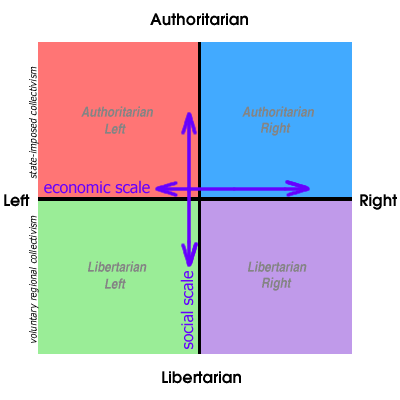
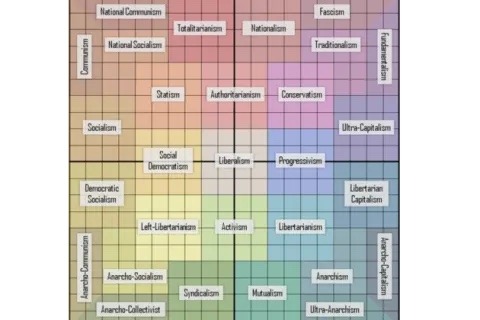
say what you will about either image; i’d argue for the unintiated, the right image is a good introduction to some lesser discussed ideologies… some of which your oc may or may not fall under.
either way, taking a good look at your character’s values on the economic + social side of things is a good place to start, as politics are something that, well… we all have ‘em, you can’t avoid ‘em.
clearly, this will have to be adjusted for settings that utilize other schools of thought (such as fantasy + historical fiction and the divine right of kings), but again, economic/social scale plotting will be a good start for most.
ii. religion + philosophy
is your oc religious? do they believe in a form of higher power? do they follow some sort of philosophy?
are they devout? yes, this applies to non-religious theist and atheist characters as well; in the former’s case… is their belief in a higher power something that guides many of their actions or is their belief in a higher power something that only informs a few of their actions? for the atheists; do they militant anti-theists who believe atheism is the only way and that religion is harmful? or do they not care about religion, so long as it’s thrust upon them?
for the religious: what is your oc’s relationship with the higher power in question? are they very progressive by their religion’s standards or more orthodox? how well informed of their own religion are they?
does your oc follow a particular school of philosophical thought? how does that interact with their religious identification?
iii. values
by taking their political stance and their religious + philosophical stance, you have a fairly good grasp on the things your character values.
is there anything they value - due to backstory, or what they do, or what they love - that isn’t explained by political stance and religious and/or philosophical identification? some big players here will likely be your oc’s culture and past.
of everything you’ve determined they value, what do they value the most?
iv. “the line”
everyone draws it somewhere. we all have a line we won’t cross, no matter the lengths we go for what we believe is a noble cause. where does your character draw it? how far will they go for something they truly believe is a noble cause? as discussed in part iii of my tips for morally grey characters,
would they lie? cheat? steal? manipulate? maim? what about commit acts of vandalism? arson? would they kill?
but even when we have a line, sometimes we make exceptions for a variety of reasons. additionally, there are limits to some of the lengths we’d go to.
find your character’s line, their limits and their exceptions.
v. objectivism/relativism
objectivism, as defined by the merriam-webster dictionary, is “an ethical theory that moral good is objectively real or that moral precepts are objectively valid.”
relativism, as defined by the merriam-webster dictionary, is “a view that ethical truths depend on the individuals and groups holding them.”
what take on morality, as a concept, does your character have? is morality objective? is morality subjective?
we could really delve deep into this one, but this post is long enough that i don’t think we need to get into philosophical rambling… so this is a good starting point.
either way, exploring morality as a concept and how your character views it will allow for better application of their personal moral code.
vi. application
so, now you know what they believe and have a deep understanding of your character’s moral code, all that’s left is to apply it and understand how it informs their actions while taking their personality into account.
and interesting thing to note is that we are all hypocrites; you don’t have to do this, but it might be fun to play around with the concept of their moral code and add a little bit of hypocrisy to their actions as a treat.
either way, how do your character’s various beliefs interact? how does it make them interact with the world? with others? with their friends, family, and community? with their government? with their employment? with their studies? with the earth and environment itself?
in conclusion:
there’s a lot of things that inform one’s moral compass and i will never be able to touch on them all; however, this should hopefully serve as at least a basic guide.
1K notes
·
View notes
Text
Want to worldbuild like a pro??
(📖 Master tips and everything I know📖)
Hello writers! You don't know how to worldbuild? Don't know where to start explaining the world you have created? Don't worry, you are in the right place! I have been there myself, and after many research (and even more trial and error) I have put together a list of the best worldbuilding tips I have encountered, and also created some of my own. (I know the first one is kind of overheard, but trust me).
Don't start right away with worldbuilding. A long paragraph about how your world works and its history might overwhelm new readers. A lot of other writers suggest waiting and learning about the world at the same time the protagonist does, or if that doesn't work for your story, dropping bits of information while the story moves forward. However, if you want to give a sense of how your world works from the start...
Exposition through action. This is my favorite method, and it helps a lot if you don't want to pause your story to info dump about the world you have created. Instead, this method relies on explaining the world and its dynamics while you continue with the narrative, briefly. For example: "As always, you couldn't see any trees in the meadow. The king had ordered years ago to cut each one of them because of a prophecy that foretold that the last dragon egg would lay in an oak."
Use expressions that reference normality or routines. In the last point, we used "as always", but there are tons of expressions you could use in your writing. This helps the reader understand what is the norm in this new world and what things are common, to later detect something that is not within that norm (or sometimes just to understand the world and its traditions better).
Use flashbacks when necessary. If you need to explain a very specific or detailed topic, I suggest using a flashback scene, that will help the reader understand with the narration and dialogue, instead of just explaining it to them. It makes for a more dynamic learning experience. But, at the end...
Do whatever will intrigue you. Some readers even like info dumps, and there is not one correct way to show your world. If it would make you curious, go and do it, wether people say it's correct or not. There are a lot of successful books that randomly stop to explain something about the world, and there is nothing wrong with that if you like it.
Hope you find this list useful, and as always happy writing :)
Also, if you are interested in tips or more examples of a specific topic, you can always leave a question in my ask. I'd be glad to answer it!!
Other tips for writers: previous
484 notes
·
View notes
Text
Partner Dancing Prompts
Waltz: a sweet, romantic moment in public
Foxtrot: making them laugh when they don't want to
Tango: a sensual moment in private setting
Rumba: anxiety eased by their partner
Salsa: teasing them until they finally give in
Cha-cha: surprising them without a reason
Viennese Waltz: a misunderstanding, resolved in public
Quickstep: showing their partner off to others
Bolero: an emotional fight, ending in tears and hugs
Paso Doble: an argument, resolved by sexual tension
Samba: understanding them without needing any words
Jive: an incredibly happy moment, can't stop smiling
Swing: a moment of complete and utter trust
Lindy-hop: a moment of spontaneity
Polka: spending time with their family
Hustle: going to a club together for the first time
263 notes
·
View notes
Text
REVERSE TROPE WRITING PROMPTS
Too many beds
Accidentally kidnapping a mafia boss
Really nice guy who hates only you
Academic rivals except it’s two teachers who compete to have the best class
Divorce of convenience
Too much communication
True hate’s kiss (only kissing your enemy can break a curse)
Dating your enemy’s sibling
Lovers to enemies
Hate at first sight
Love triangle where the two love interests get together instead
Fake amnesia
Soulmates who are fated to kill each other
Strangers to enemies
Instead of fake dating, everyone is convinced that you aren’t actually dating
Too hot to cuddle
Love interest CEO is a himbo/bimbo who runs their company into the ground
Nursing home au
43K notes
·
View notes
Text
writing tips/inspo/help
Character Movements #1
Punctuating Dialogue
50 WORDS TO USE INSTEAD OF “SAID”
traits turned sour
DESCRIBING THE PHYSICAL ATTRIBUTES OF CHARACTERS:
Vary your language with synonyms to use instead of "said"
WEBSITES FOR WRITERS
Descriptions in Between Dialogue
switch up your verbs (part one) ~
words to use when writing
writing resources - smut
Writing Resources: References
Writing Resources: Advice and Motivation
Writing Resources: Basics
Writing Resources: Characters
Writing References: Narratives
words to use when writing
writing perfect betrayal
toxic traits
words to use instead of...
fight scene
how to create a supermarket setting
kissing vocab
3K notes
·
View notes
Text
Emotions in writing
The following examples have been taken from the book The Emotion Thesaurus: A Writer's Guide To Character Expression by Angela Ackerman & Becca Puglisi - make sure to get the book!
Confidence
Definition: having faith in one’s own influence and ability
Physical signals:
Strong posture (shoulders back, chest out, chin high)
Walking with wide steps
Strong hygiene and personal grooming
Holding the hands loosely behind the back
Touching one’s fingertips together (tapping, forming a steeple)
A gleam in one’s eye, an inner light
Smiling, a playful grin
Winking or giving someone an easy nod
Keeping one’s hands out of the pockets
Appearing relaxed (drumming fingers against a leg, humming)
Taking up space (legs spread wide, arms loose at the sides)
Approaching people with ease
Looking others directly in the eye
Arms swinging while walking
Choosing the middle, not the sides (be it a couch or a room)
Using exaggerated movements to draw attention to oneself
A booming laugh
Showing comfort in the close proximity of others
Initiating contact
Telling jokes, adding to or steering a conversation
Hosting events (getting the guys together for a football game)
Openness when dealing with people
Appearing unbothered by what others may think
Leaning in to talk or listen
Increased physical contact, becoming touchy-feely
Running hands through one’s hair or flipping the hair back
Assuming a pose that draws attention to one’s best attributes
Wearing clothes that are flashy or dramatic
Internal sensations:
Relaxed muscles
Easy breaths
Lightness in the chest
Cues of acute or long-term confidence:
Doing or saying things outside of the norm without anxiety or concern
Obsessively talking about an achievement or material object
Reacting with anger or jealousy if one’s reputation is impugned
Bragging, showing off
Cues of suppressed confidence:
Minimizing compliments
Modesty
Changing the topic to bring others into the spotlight
Downplaying one’s own comfort level to make others feel better
Asking for opinions or advice
398 notes
·
View notes
Text
Fantasy Guide to Royal Children - Heirs and Spares

The lives of Princesses and Princes are of interest to most fantasy writers, it's where many of our heroes, side characters and antagonists hail from. But what is there life like? Is it always ballgrowns and servants? Or something more?
A Strict Order of Precedence

The first thing to know about royal children and siblings is that there's a very strict precedence of importance. Is it fair? No. But this is a system, it doesn't have to be fair. The heir comes first without argument. They are the most important child, they are always greeted first, they are the one to stand next to the monarch or their parents at occasions, they literally go first - and this doesn't change with age, if the heir is the youngest, they still have precedence over their siblings. After the heir, order of predence goes by age and the order effects the life of the children. For example, the older sister will marry begore any of her sisters. This order of deference will be so engrained in your character's life that they will believe it the norm and rarely question it, it probably won't spark any in-fighting.
Accommodation & Staff

Royal children are usually raised one of two ways. Either they are raised at court, in the same Palace as their parents or they are raised away from court under the care of trusted servants. Being raised away from their parents isn't a sign of remoteness or dislike or terrible parenting, it was a way of break a child into the constraints of royal life while giving them freedom of scrunity or danger. Usually these children are raised in the countryside for their health, as cities are usually cesspits for disease. Their parents would come to visit them or allow them to visit them at court. Children raised at court are raised with a higher level of scrunity and attention. They will be in the public eye.
Royal children will always be surrounded by staff. There will be nurses to wash and dress them, nannies to discipline and direct them, guards to protect them and usually, a guardian known as a governess to run their household and care for their needs. Staff are not allowed to hit royal children and must obey their commands. Some royal children were very close to their staff:
Kat Ashley and Elizabeth I
Baroness Lehzen and Queen Victoria
Klementy Grigorievich Nagorny and the Tsarevich Alexei Nikolaevich
Lala Bill and Prince John
However, some royal children faced neglect from their staff. George VI was abused by his nanny, who would pinch him during important occasions, openly favour his elder brother over him and deny him food, which many have been a cause of his speech impediment. After the Russian Revolution, another of the Tsarevich's nannies proved less loyal than the other. Andrei Yeremeyevich Derevenko abandoned his charge, but not before ordering the boy around and insulting him.
Day to Day Life

Royal children would be educated withing their home by tutors. They would usually take lessons all together (the heir may take other lessons). A royal child would recieve an education in languages, arithmetic, geography, etiquette, dancing, music, sports such as riding and literature. Sometimes they would even share lessons with the children of trusted nobles or their cousins. Only the heir will be taught statecraft and how to reign. There is no rhyme nor reason a spare would learn how to rule.
Some royal children are taught the value of their position. Many royal children will be raised strictly to adhere to their social standing and their place in it. Some children may be raised in isolation, kept from mingling and raised to think of themselves as higher than those around them. Some royal families preferred to raise their children as "normal" as possible. The last Romanov children slept in camp beds, with no pillows and we're expected to tidy their own rooms and help the servants. They didn't even use their proper titles, they were called by their names and given a tight monthly allowance to spend. Alexandra of Denmark and her sisters used to make their own clothes. Some royal children could even be encouraged to play with the children of servants and staff as well as nobility (Kolya Derevenko and Tsarevich Alexei Nikolaevich, Winifred Thomas and Prince John). Companionship was a great honour for noble and common child alike as sometimes, they would be invited to live or be educated alongside by the royal children.
Royal children will not undertake royal duties until they are of age. Younger children be be present for large scale events such as jubilees but would not be expected to partake in any duties themselves. When they are of age, they will usually be granted an annual allowance, be invited to social events, invited to be patrons of charities and participate in royal duties.
Heir Vs Spare

Heirs have more responsibility, all the prestige, more power but they have less freedom, less room to explore their own lives and be expected to always be the epitome of perfect. Heirs will be given responsibilities in government, sitting in on state meetings or undertaking state duties.
Spares have little in the way of real power but have the ability to live less regimental lives and gave more agency in their personal lives. Spares may act as ambassadors to other nations or undertake state visits on behalf of the monarchy or even take positions in the army. Spares are encouraged to find positions to support themselves outside the family, either in a marriage or undertaking some service to the country. Spares who stay in the country, tend to act as unofficial advisers to their sibling when they become monarch.
All Grown Up

When royal children grow up, there are usually certain expectations and limitations.
Heirs will be married quickly, the lineage must be secure. Heirs will usually marry either as part of a political alliance or marry somebody suitable - from a good family, the right background, and able to fit into a certain mould (i.e malleable, amiable and loyal). They will be expected to focus on the country, it's needs and support the monarch at all times. Their social circles will be scruntised, their every move will be noted and remarked upon. Heirs will never gave to worry about funding their lifestyle, the Crown is their job and it supports them.
Spares can marry or remain single if they choose, (but if the monarch instructs them go marry they must). Spares can travel, they can be idle, they can even persue amusements not permitted for the heir. Spares can win glory on the battlefield and mix with all sorts of people. That isn't to say spares are useless, spares often occupy very important spaces in society and government. Spares will usually take these positions not for just status but also for the pay. This is why spares are granted royal titles such as dukedoms (they can make money off the lands, be able to build a dynasty for themselves and their heirs and gain status).
2K notes
·
View notes
Text
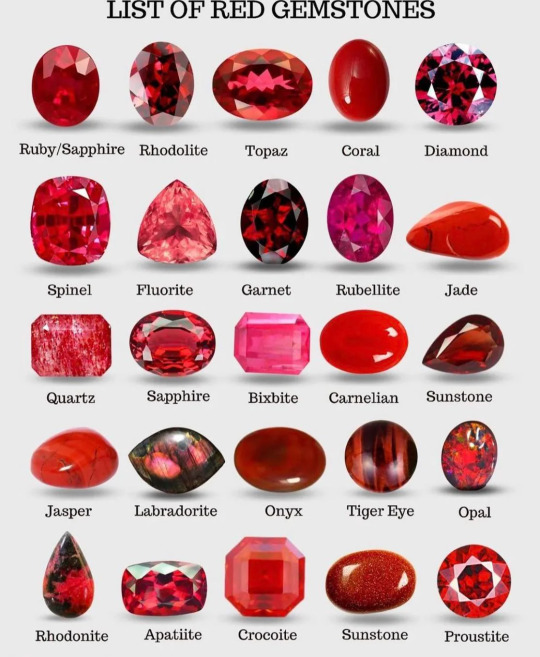
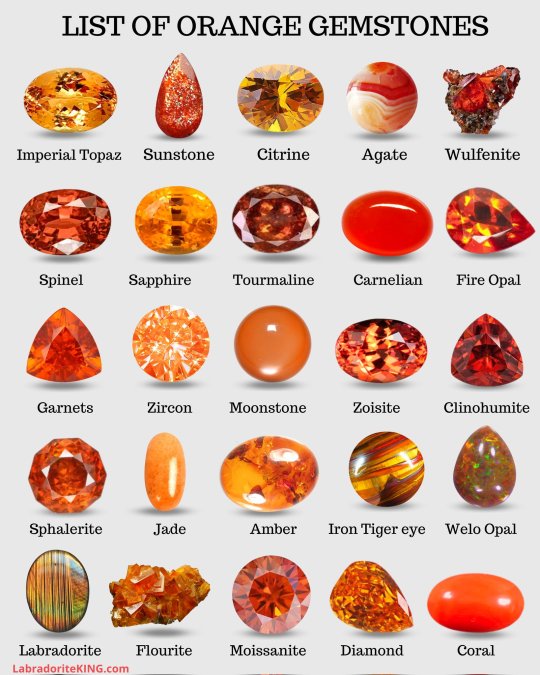
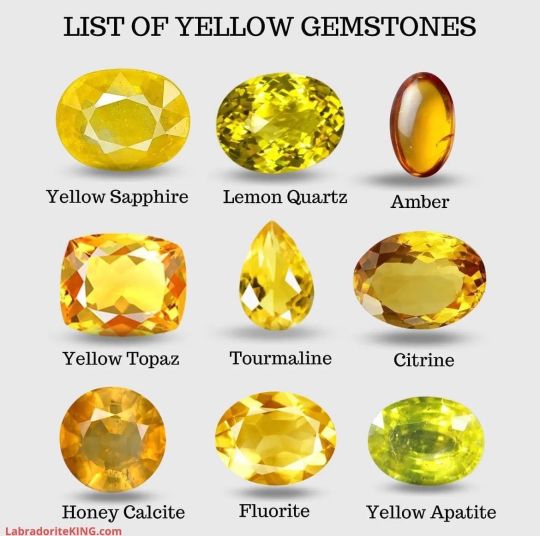
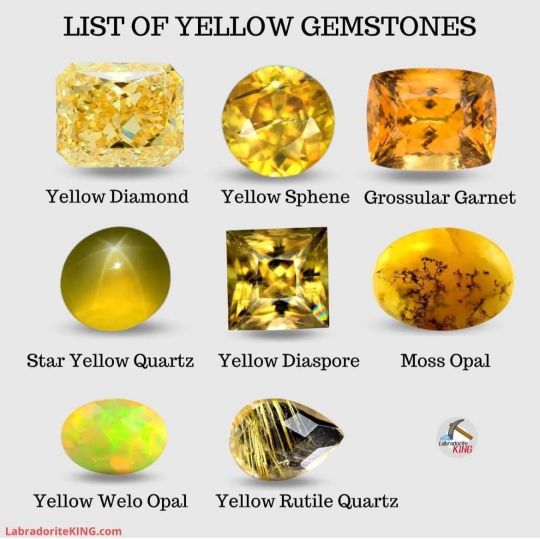
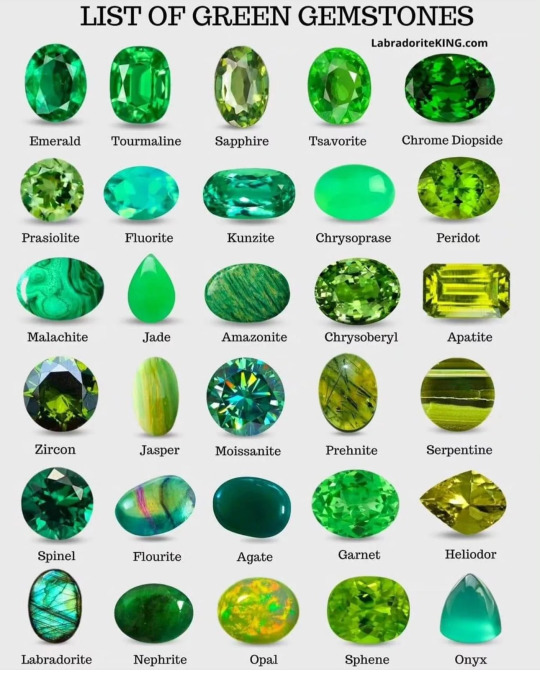
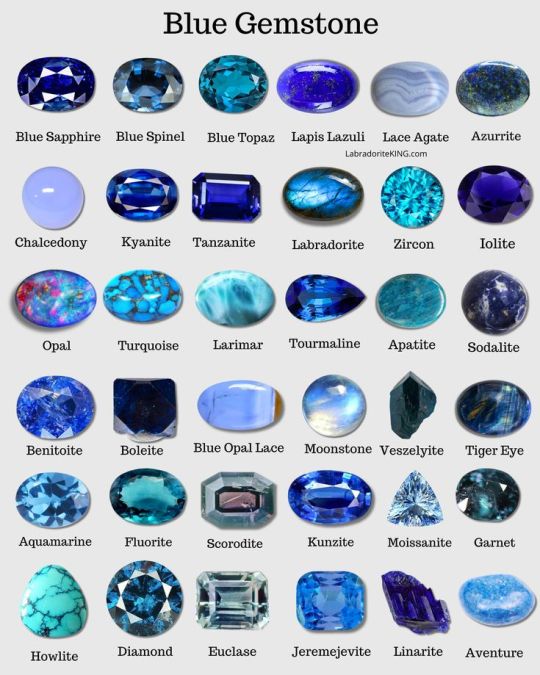
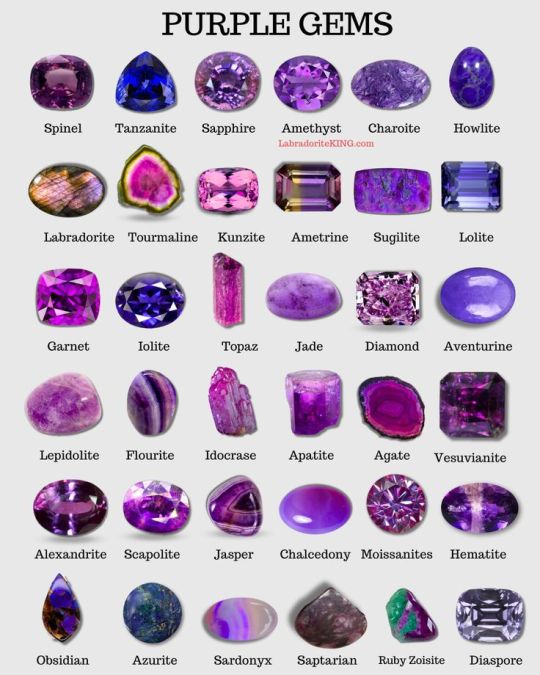
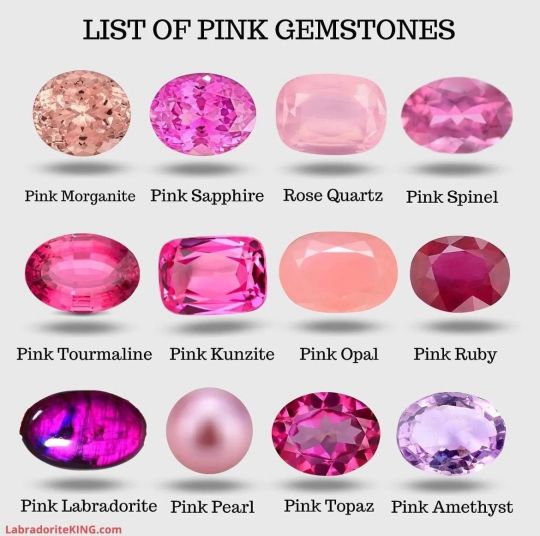
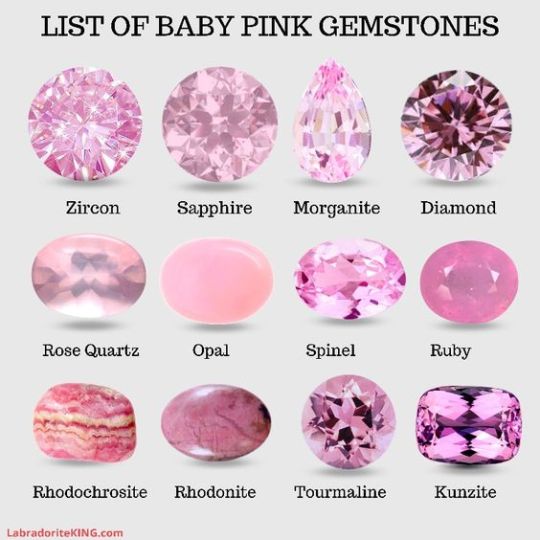
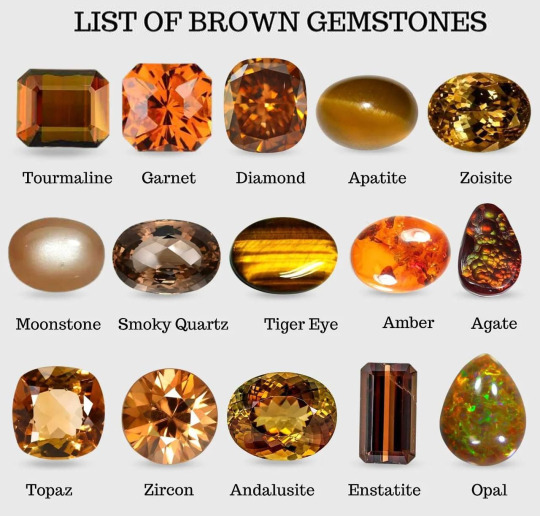
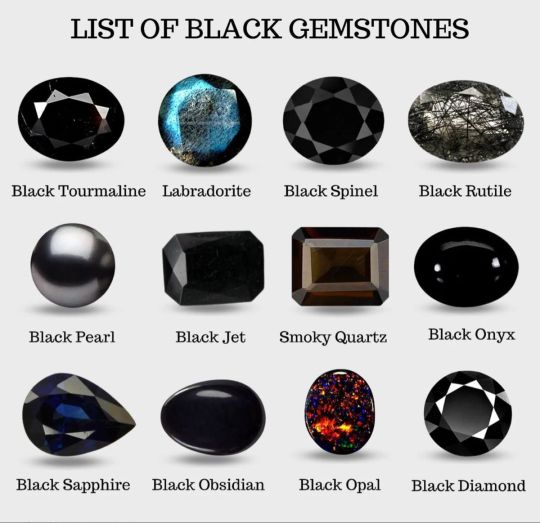

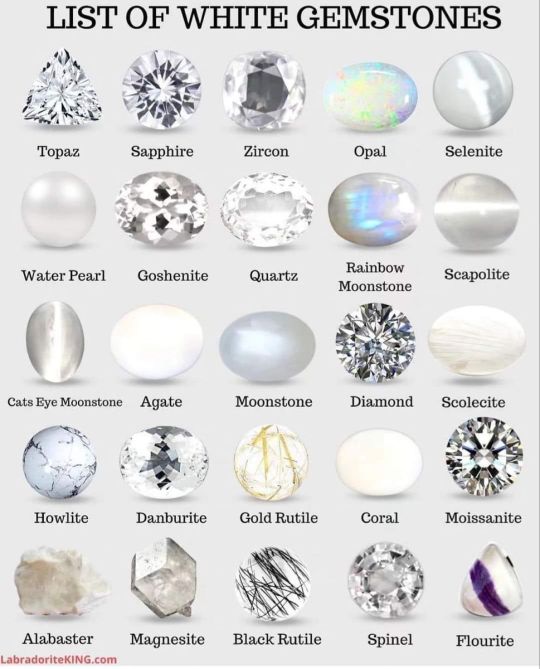
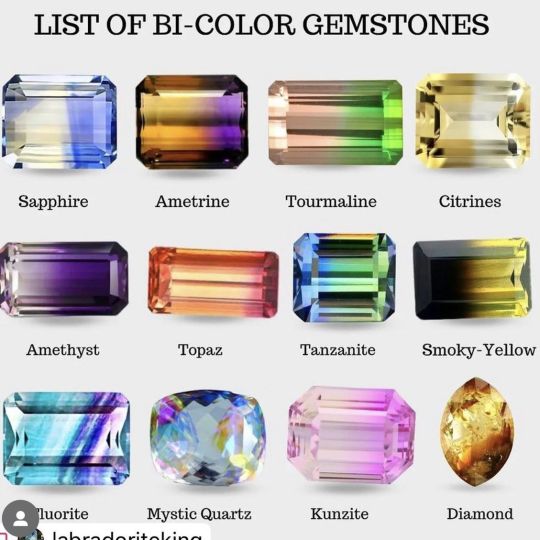
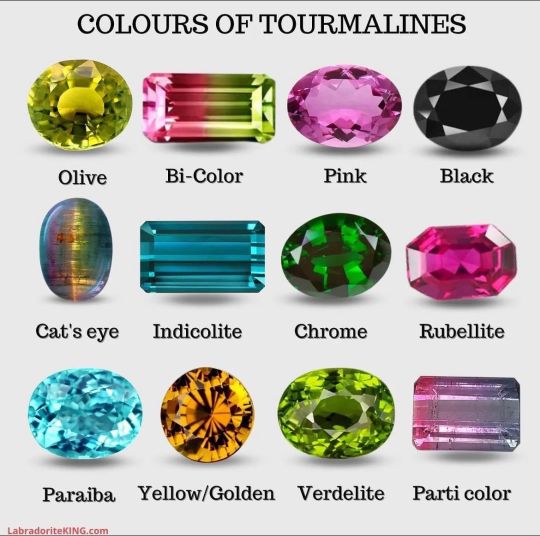
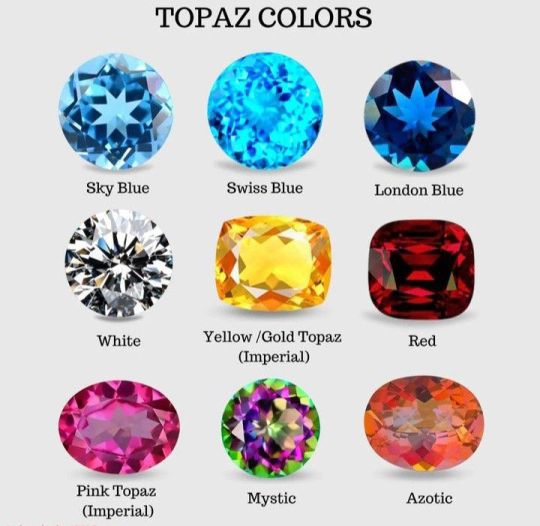
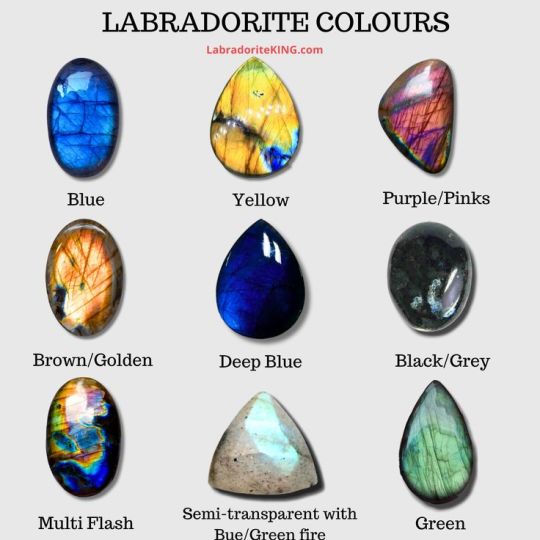
By LabradoriteKing on Pinterest
106K notes
·
View notes